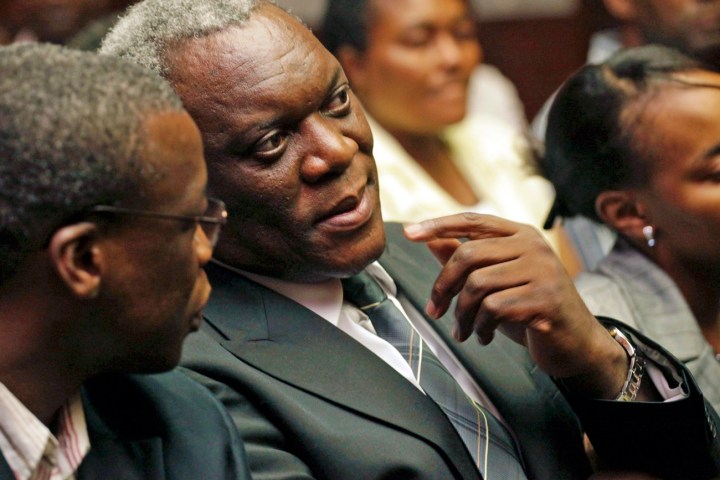State security minister Siyabonga Cwele on Friday adopted the remarkably audacious position that there is nothing fundamentally wrong with the Protection of Information Bill. It just needs a couple of tweaks, he says, and those only to help its excitable opponents understand it better. A public-interest defence? Oversight in full public view? Don't be silly, that's obviously impossible. By PHILLIP DE WET & THERESA MALLINSON.
It was an opportunity to reassure a great number of people and organisations, or perhaps even take the unusual step of withdrawing a piece of legislation from the parliamentary process for a quick once-over. Instead state security minister Siyabonga Cwele on Friday told the ad-hoc committee of Parliament working on the Protection of Information Bill that South Africa is beset by spies trying to steal sensitive information and influence local politics, and urgently needs to tighten up on the handling of confidential information.
And while he agreed that some of the vague and broad definitions in the legislation need work, and that some chapters need to be rearranged, he strongly implied that the alterations would be only for the benefit of those who don’t understand the intent of the law.
Some of the definition changes could be significant, such as the removal of the catch-all phrase “in the national interest”. Cwele on the other hand flatly dismissed any suggestion that the Bill should include a public-interest defence, which would protect whistleblowers and journalists who publish restricted documents that show, say, institutional or office bearer malfeasance. He recommended instead that journalists who come into possession of such documents should hand them over to the police, to avoid getting into trouble. Or use the argument of public interest to legitimately gain access to such information – though he did not explain how those without access to restricted documents could argue for access to such documents on the basis of what is contained within the documents they aren’t allowed to see in the first place.
He also rejected suggestions that oversight of what material is classified as secret should be strengthened, and should stretch beyond government, saying such measures would not be practical.
Many of the changes Cwele proposed, on the basis of public submissions he says were quite thoughtful and taken into account, seem purely cosmetic. He recommends, for example, that criminal sanctions for government officials who classify documents to hide corruption should be made much more severe. That may deter those who try to hide corruption behind a veil of state secrecy – but probably won’t, given how hard it would be for anyone outside of security officials to challenge the classification of a document.
In speaking to the media after his session in Parliament, Cwele spent most of his time speaking about perception, saying the Bill should be altered for “easier understanding” and to “eliminate any confusion”. Critics who “have written to all sorts of structures” should just calm down and allow the parliamentary process to take its course, he said, because their actions were not in the interests of the country.
Which is, we think, quite remarkable given who stand on the other side of the line Cwele has drawn: Amnesty International, the Black Sash, the Commonwealth Human Rights Initiative, the Desmond Tutu Peace Centre, Human Rights Watch and the Treatment Action Campaign are only some of the organisations that have signed up to the Right2Know campaign, which lists among its demands that the legitimate disclosure of public-interest information not be criminalised.
That leaves the matter with Parliament, which can decide to take the advice of Cwele’s predecessor, Ronnie Kasrils, and push the Bill out for further (and perhaps, dare we suggest, real) public consultation, or which can accept Cwele’s interpretation that all such public input to date is a little hysterical, and stands between South Africa and a future secure against the myriad for foreign spies even now conspiring against the Republic. DM
Photo: South Africa’s State Security Minister Siyabonga Cwele sits in court before his wife Sheryl Cwele appears in the Pietermaritzburg High Court February 5, 2010. Sheryl Cwele is applying for bail after being arrested on charges of dealing drugs, the country’s National Prosecuting Authority said. REUTERS/Stringer.



















 Become an Insider
Become an Insider